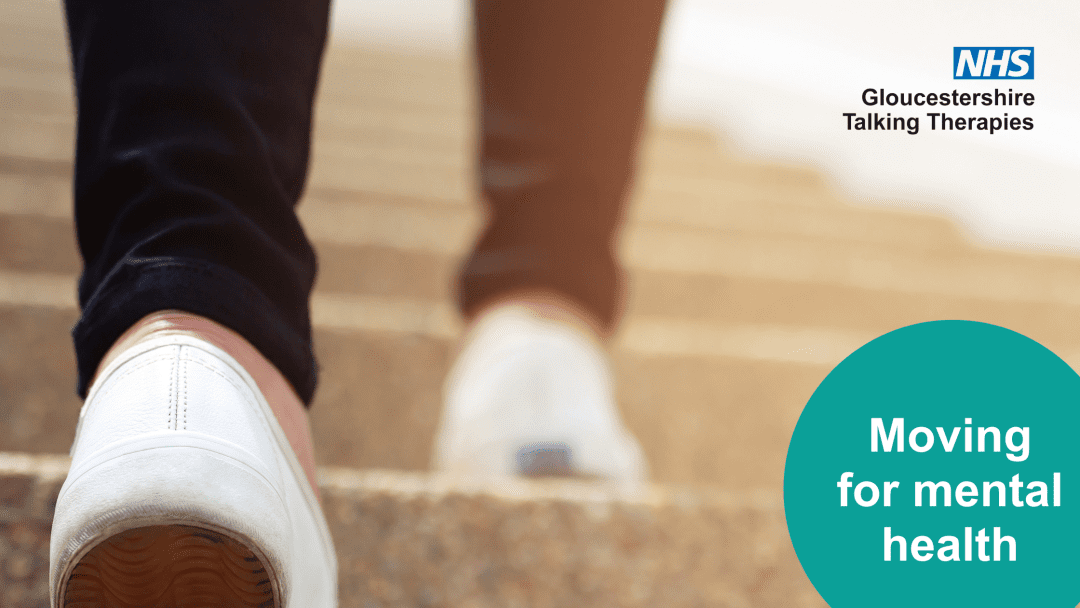
This week (13-19 May) is Mental Health Awareness Week. Since 2001, the Mental Health Foundation has been leading #MHAW to unite the UK in achieving good mental health.
The theme of this year’s campaign is ‘Movement: Moving more for our mental health’. Being active is a natural mood booster and one of the best things we can do to positively affect our mental health. Activity helps to reduce anxiety and stress, and improves our sleep and mood, thanks to the body releasing endorphins – the ‘feel-good’ hormones.
Regular physical activity is known to improve mental health, quality of life and wellbeing. It also helps prevent and treat heart disease, stroke, diabetes, breast and colon cancer, and more. Yet despite these benefits being well established, over a third of UK adults do not meet the recommended amount of daily activity.
There are many ways to introduce more movement into our lives, which can be a real game changer. Here, our Gloucestershire NHS Talking Therapies service shares a handful of simple suggestions for you to try to boost your mental health by getting active:
- Take the stairs instead of the lift or escalator
- If it’s a short journey, why not swap your car for a walk? (You’ll also save some money too!)
- Go for a short walk, run or cycle. Why not invite a friend along for the company and for an extra mood boost?
- During your lunchbreak, move away from your workspace and take in the fresh air.
For more ideas and to find out about the benefits of physical activity, visit: Be active for your mental health – Every Mind Matters – NHS (www.nhs.uk) No matter how you introduce more movement into your daily routine, it all counts and will make a difference.
However, if you haven’t been feeling like yourself lately and are struggling with your mental health, it might be time to reach out for support to get you back on track – which is where our Talking Therapies service can help. You do not need to struggle alone.
This self-referral service treats common issues such as depression, stress, anxiety and phobias, using cognitive behavioural therapy (CBT). This focuses on identifying negative thought patterns to promote positive change. Sixty-nine per cent of those in the South West who have accessed professional help, such as CBT, for an anxiety disorder or depression, saw an improvement in their mental health. Important note: You do not need to visit your GP to access support from Gloucestershire Talking Therapies.
To find out more about the service and to make a self-referral, visit www.letstalkglos.nhs.uk, or call 0800 073 2200. After referring yourself to the service, you will be invited to an assessment call with a trained clinician, who will discuss how you are feeling and the treatment options available to you. Treatments are delivered by trained therapists and will be provided online, on the phone or in person.
* This research was conducted by Censuswide, among a sample of 2008 Consumers in England.




